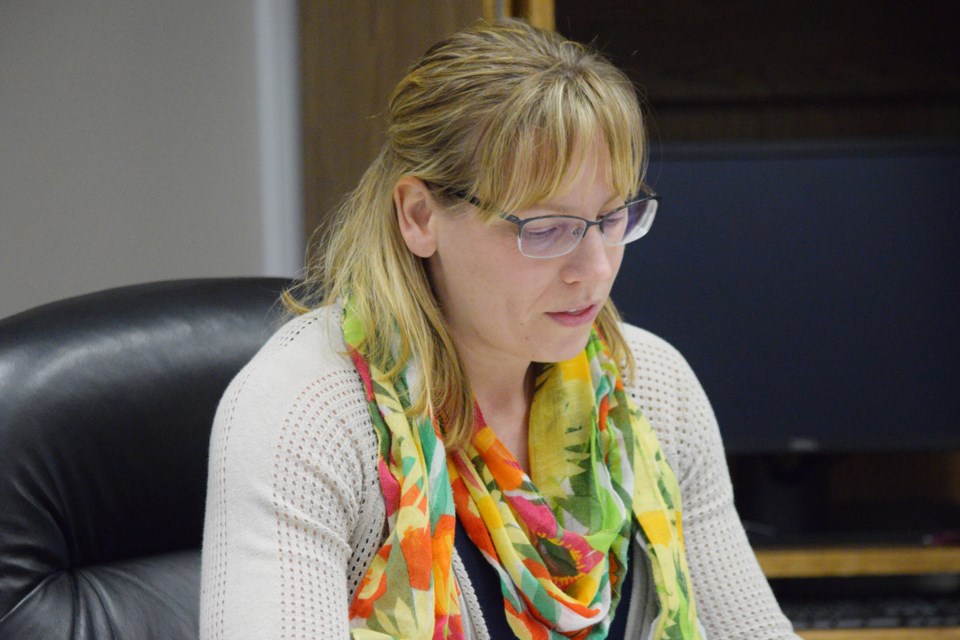BARRHEAD – County of Barrhead residents will have a little grace period before they are charged interest on their utility bills and other accounts receivables thanks to a new bylaw.
Councillors unanimously passed a motion, during their April 7 meeting, that temporarily waived the late penalties for 90 days on County of Barrhead utilities, i.e. water and sewer bills, as well as other accounts receivable due April 1.
Councillors also authorized administration to suspend sending overdue April 1 bills to collections until after July 31.
Director of finance Tamara Molzahn said the province is encouraging utility companies and municipalities to follow its footsteps and waive late payment penalties on overdue accounts to ease the economic hardship residents are incurring due to the COVID-19 outbreak.
“This is why we are bringing this forward for councillors to consider,” she said.
Currently, the county charges a 1.5 per cent penalty per month applied 30 days from the date of the last monthly utility bill or other account receivable statement.
Account receivables can be anything from a bill for gravel and firefighting services to tax certificates.
The penalties are stated in Policy 12.03.
“The ability to cancel any finance charges and penalties right now is at the discretion of the director of finance or administration,” Molzahn said, noting no formal policy exists.
Before coming up with the policy, she researched what other municipalities are doing.
In Edmonton, if a resident contacts the municipality stating they are having difficulties in paying their utility bill, no late penalties are incurred and residents have the option of deferring payment for three months.
St. Albert to ease the financial burden of its residents due to the coronavirus, in contrast, also charges no late penalties, no transfer to taxes and also offers ratepayers the option of deferring payments for three months.
“The messaging in both municipalities is pay if you can,” she said.
Molzahn reiterated that Edmonton and St. Albert were offering residents the option of deferring payment without penalties for a set period.
“They are not writing off the debt,” she said.
Given her druthers, Molzahn noted she would go with St. Albert’s model saying it is easier to administer and is more fair to residents.
“All ratepayers are treated equally in that they automatically qualify for this deferral,” she said.
Molzahn noted if the county waived penalties for late payment of account receivables and utility bills the county would lose about $225 a month.
Coun. Darrell Troock asked for clarification.
“We are only talking about late penalties and not the actual bill itself?” he asked.
County manager Debbie Oyarzun confirmed that the amount on the bill is still owed.
“They would just have more time to pay it before a penalty is added to it,” she said.
Troock then asked if this is something the province was mandating municipalities to do.
“No, but because they are doing it, deferring payment for 90 days, they are asking municipalities to do the same,” Oyarzun said. “And a lot of them have.”
Coun. Marvin Schatz asked if the Town of Barrhead was doing something similar.
Molzahn said to her knowledge, they had nothing in place yet, but they were looking at several options.
On March 24, Town of Barrhead councillors passed a Bylaw that gave their Chief Administrative Officer the power to “adjust the utility billing cycle” by deferring payments and/or waiving late payment penalties.
Coun. Coun. Walter Preugschas said while he supported the concept, he was concerned that the county could not absorb the loss of “cash flow”.
“How much do those bills take in per month?” he asked.
About $40,000, Molzahn estimated.
“Say $80,000 to July 1,” she said. “I believe we can cover that with our existing cash.”
Troock suggested it might be better to give them a one per cent early bird discount for paying their accounts early.
“Pay your bill 10 days early and we’ll give you money for it,” he said. “Why are we penalizing bad behaviour? Why can’t we credit good behaviour?”
Reeve Doug Drozd said ordinarily he might agree, but not when people are having difficulty paying their basic expenses.
“We want to make sure people have enough money in their bank accounts so they can buy groceries,” he said.
Barry Kerton, TownandCountryToday.com
COVID-19 UPDATE: Follow our COVID-19 special section for the latest local and national news on the coronavirus pandemic, as well as resources, FAQs and more.



.jpg;w=120;h=80;mode=crop)